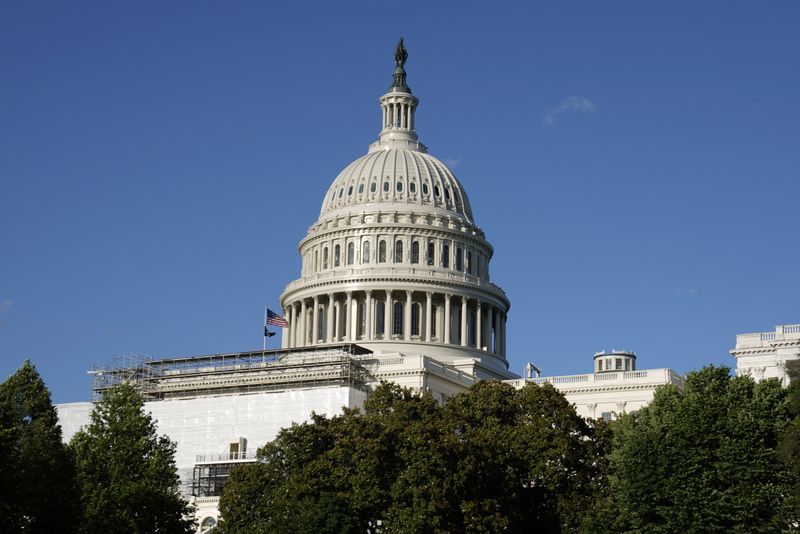By Rose Horowitch
WASHINGTON (Reuters) -The U.S. House of Representatives on Thursday passed a bill to protect access to contraception, responding to concerns that it could be threatened by a conservative Supreme Court that revoked the ruling that guaranteed a nationwide right to abortion.
The bill passed the Democratic-controlled House on a vote of 228-195, with all 220 Democrats and eight of the chamber's 211 Republicans supporting it. It faces uncertain odds in the evenly divided Senate.
The bill would create a federal right for people to access contraceptives and for doctors and pharmacists to provide them. Contraceptives are used by 88% of U.S. women of childbearing age who are not trying to get pregnant, according to the Guttmacher Institute, an abortion rights advocacy group.
Some state legislatures have introduced bills to restrict access to contraceptives, though they have not passed. In addition, 12 states allow health providers to refuse contraception, according to the Guttmacher Institute.
"We need federal legislation to make it absolutely clear that people have the right to use and buy birth control," Democratic Representative Kathy Manning, the bill's sponsor, said in an interview.
Republican Representative Cathy McMorris Rodgers said the right to contraception was not at risk and that Republicans understood there is a "clear distinction" between contraception and abortion.
The bill would force healthcare providers to "violate their religion," she said in debate on the House floor.
Democrats introduced the bill after the Supreme Court ended the nationwide right to abortion in June by overturning its 1973 Roe v. Wade ruling.
Conservative Justice Clarence Thomas wrote that the court should reconsider other rulings that established rights to contraception and same-sex marriage because they were based on the same legal argument as Roe.
Democrats hope the bill will draw a contrast with Republicans ahead of the Nov. 8 midterm elections, when control of Congress is at stake.

The House on Wednesday passed a bill to protect same-sex and interracial marriage with bipartisan support. Last week, the House passed bills to establish nationwide abortion rights and to protect the right to travel between states for an abortion, with votes largely along party lines.
It is unclear whether any of these bills will pass the Senate for Democratic President Joe Biden to sign into law.
